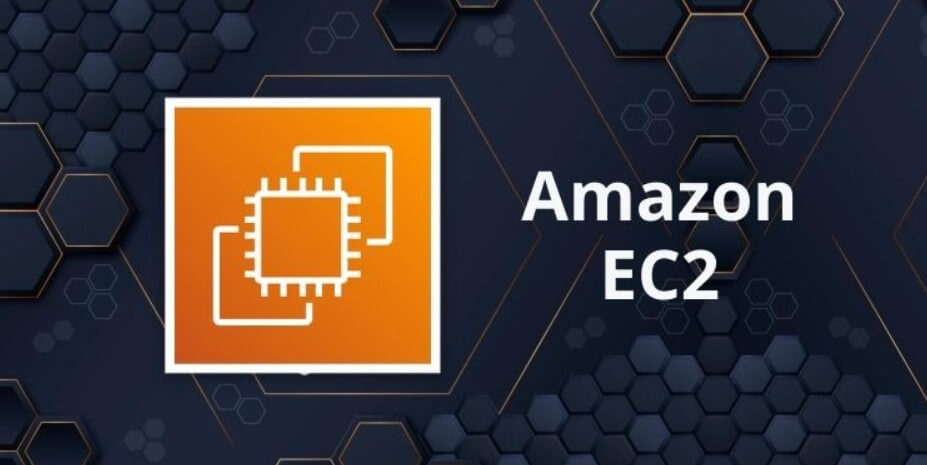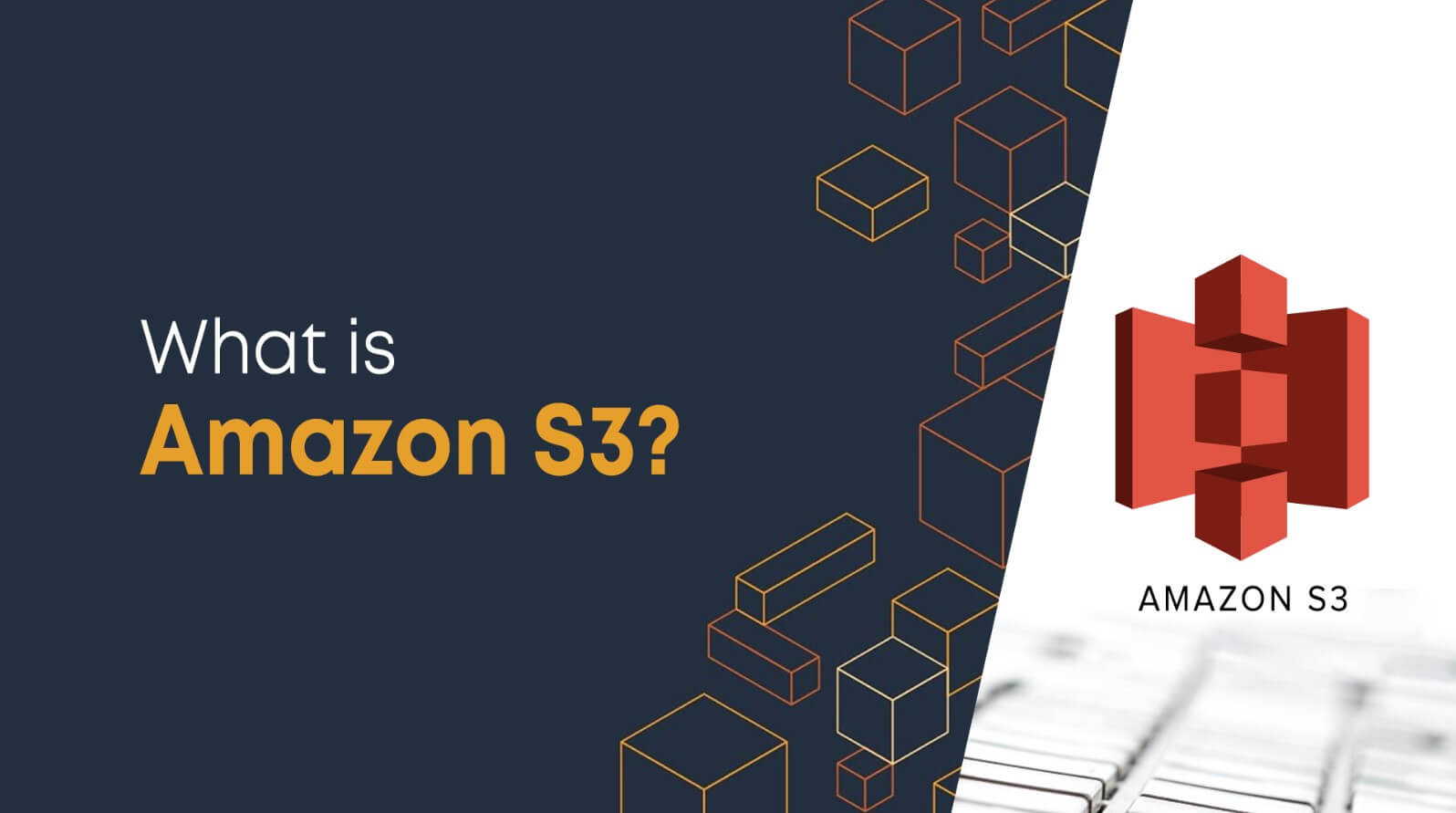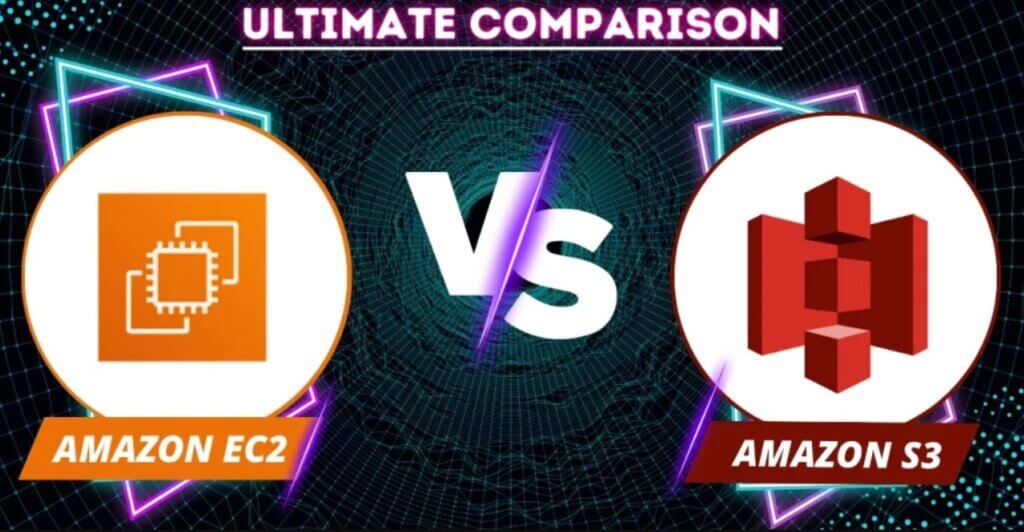Amazon Web Services (AWS) offers a wide array of cloud computing services, with Amazon EC2 (Elastic Compute Cloud) and Amazon S3 (Simple Storage Service) being two of the most popular. While both are integral parts of the AWS ecosystem, they serve completely different purposes. Understanding the differences between Amazon EC2 vs Amazon S3 can help businesses optimize their cloud strategy and resource allocation.
In this article, we’ll break down the features, benefits, use cases, and key differences between Amazon EC2 and Amazon S3, so you can make an informed decision.
What is Amazon EC2?

Amazon EC2 (Elastic Compute Cloud) is a highly scalable, on-demand compute service. It allows users to run virtual servers, or instances, in the cloud with customizable configurations. Essentially, EC2 provides the computing power needed to run applications, host websites, and more.
Features of Amazon EC2
- Scalable Compute Power: Adjust instance size to match workload requirements.
- Customizable Instances: Choose from various instance types optimized for memory, storage, and processing.
- Pay-as-You-Go Pricing: Pay only for the compute resources you use.
- Integration with AWS Services: Easily connect with other AWS tools like RDS, Lambda, and S3.
- Elastic Load Balancing: Automatically distribute traffic across instances for high availability.
Use Cases for Amazon EC2
- Web Hosting: Power websites or web applications that need scalable compute resources.
- Big Data Processing: Run analytics tools like Hadoop for processing massive datasets.
- Development and Testing: Set up environments for software development or testing without physical hardware.
- AI and Machine Learning: Train machine learning models using GPU-optimized instances.
What is Amazon S3?

Amazon S3 (Simple Storage Service) is a cloud storage service designed for high durability and scalability. It allows businesses to store, retrieve, and manage large amounts of data efficiently.
Features of Amazon S3
- Unlimited Storage: Store any amount of data without worrying about capacity limits.
- High Durability: Data is redundantly stored across multiple facilities to ensure durability.
- Object Storage Model: Store data as objects, each identified by a unique key.
- Security: Offers robust encryption and access control features.
- Cost-Effective Storage: Optimize costs with tiered storage options like S3 Standard, S3 Glacier, and S3 Intelligent-Tiering.
Use Cases for Amazon S3
- Backup and Archiving: Store backups or archive data for long-term retention.
- Data Lakes: Build scalable data lakes for analytics and business intelligence.
- Content Distribution: Deliver static content like images, videos, and documents.
- Disaster Recovery: Securely store critical data to ensure business continuity.
Amazon EC2 vs Amazon S3: Core Differences
| Aspect | Amazon EC2 | Amazon S3 |
|---|---|---|
| Purpose | Compute resource | Data storage |
| Type of Service | Virtual servers for applications | Object storage for data |
| Scalability | Auto-scaling compute capacity | Unlimited storage capacity |
| Pricing | Pay-per-instance/hour usage | Pay-per-GB storage and requests |
| Use Cases | Hosting apps, processing data | Backup, archiving, content delivery |
Key Differences Between Amazon EC2 and Amazon S3
1. Purpose and Functionality
- Amazon EC2 is a compute service, which means it provides virtual machines to process tasks. If your goal is to run applications, host a website, or perform heavy computation, EC2 is your go-to service.
- Amazon S3, on the other hand, is a storage service that focuses on data storage and retrieval. It’s best for managing and archiving large datasets, such as backups, media files, or logs.
2. Scalability
- EC2 offers scalability for compute resources. You can add or remove instances depending on the workload, making it suitable for applications with fluctuating demand.
- S3, however, provides virtually unlimited storage space, allowing businesses to store massive amounts of data without worrying about capacity.
3. Pricing Models
- EC2 Pricing is based on instance type, size, and usage time. You can opt for on-demand, reserved, or spot instances to save costs.
- S3 Pricing depends on the amount of data stored and the number of operations performed (e.g., uploads, retrievals). Lower-cost storage classes like S3 Glacier are available for long-term storage needs.
4. Use Case Compatibility
- Use EC2 for scenarios requiring active computation, like running web apps, data processing, or simulations.
- Use S3 for static storage needs, such as storing images, videos, and database backups.
When to Use Amazon EC2?
You should choose Amazon EC2 if:
- You need on-demand or reserved compute resources for processing tasks.
- Your project involves hosting scalable web applications.
- Compute-intensive workloads like simulations, data mining, or machine learning are required.
- You’re developing, testing, or deploying software applications.
When to Use Amazon S3?
Amazon S3 is the right choice if:
- Your focus is on storing and retrieving large datasets.
- You need a secure and cost-effective backup solution.
- You’re building a content delivery network for distributing files globally.
- Your business needs a data lake for big data analytics.
Integrating Amazon EC2 and Amazon S3
Many businesses use Amazon EC2 and Amazon S3 together to create powerful, scalable solutions. For instance:
- Use Amazon EC2 to process data stored in Amazon S3.
- Host a website on EC2 and store static assets (like images or videos) in S3.
- Combine EC2 compute instances with S3 to run data-heavy applications.
Pros and Cons of Amazon EC2
Pros:
- Fully customizable compute environments.
- High scalability for dynamic workloads.
- Integrated security and monitoring tools.
Cons:
- Costs can rise for long-running instances.
- Requires knowledge of cloud infrastructure to optimize usage.
Pros and Cons of Amazon S3
Pros:
- Extremely cost-effective for storing massive amounts of data.
- Built-in durability and redundancy.
- Variety of storage classes to match different use cases.
Cons:
- Limited to storage-only use cases.
- Data retrieval costs can accumulate for frequent access.
FAQs
What is the main difference between Amazon EC2 and Amazon S3?
Amazon EC2 provides compute resources (virtual servers), while Amazon S3 is a storage service for managing and retrieving data.
Can I use Amazon EC2 and Amazon S3 together?
Yes, they are often used together to store data in S3 and process it using EC2.
Which is better for hosting a website, EC2 or S3?
Use EC2 for dynamic websites requiring server-side processing, and S3 for hosting static websites.
Is Amazon S3 cheaper than EC2?
S3 is generally cheaper for data storage, while EC2 costs depend on compute resources and uptime.
Are there any alternatives to EC2 and S3?
Yes, alternatives include Google Cloud Compute Engine (for EC2) and Google Cloud Storage (for S3).
Can I store databases in Amazon S3?
While S3 can store database backups, it’s not suitable for running live databases. Use services like Amazon RDS or DynamoDB for that.
Conclusion
Amazon EC2 and Amazon S3 are both essential components of AWS, but they serve very different purposes. EC2 is designed for compute tasks, while S3 excels at data storage. By understanding their differences and use cases, businesses can leverage these services effectively for their cloud computing needs.
Whether you’re running a high-traffic web application or storing terabytes of critical data, the combination of EC2 and S3 can provide a scalable, reliable, and cost-effective solution.
